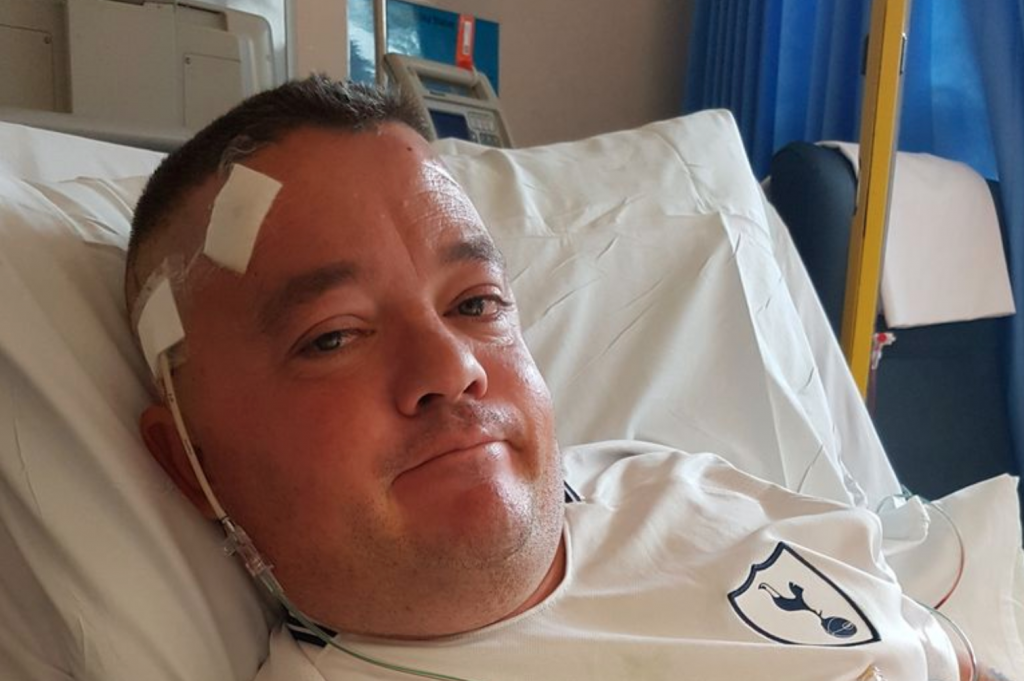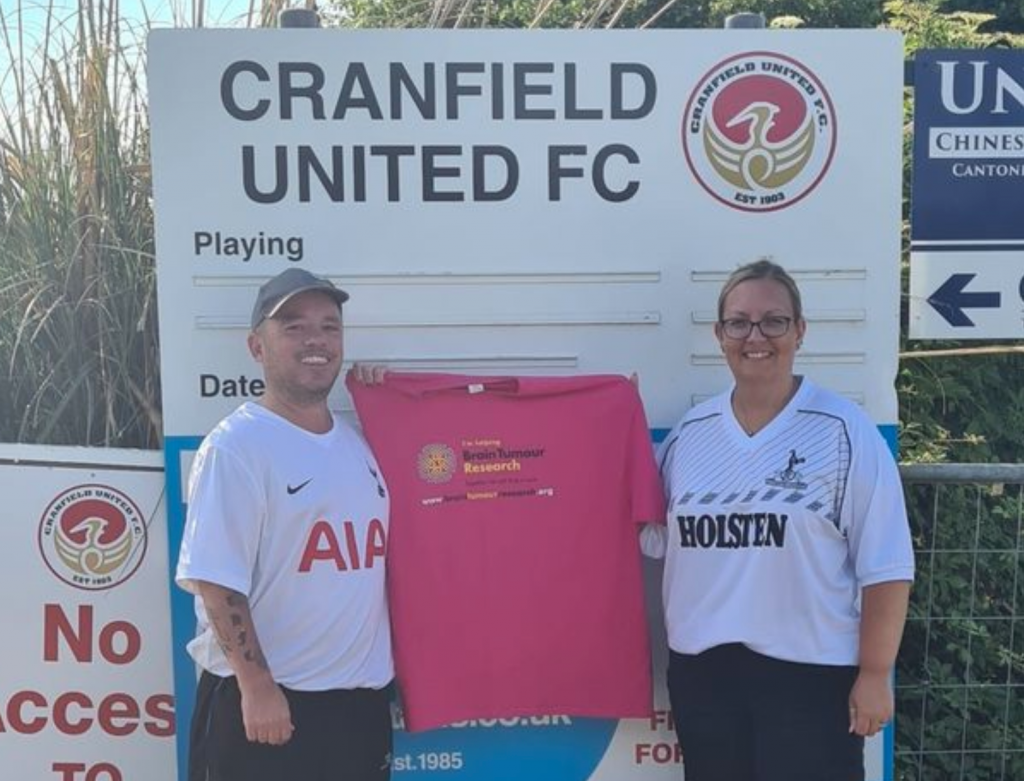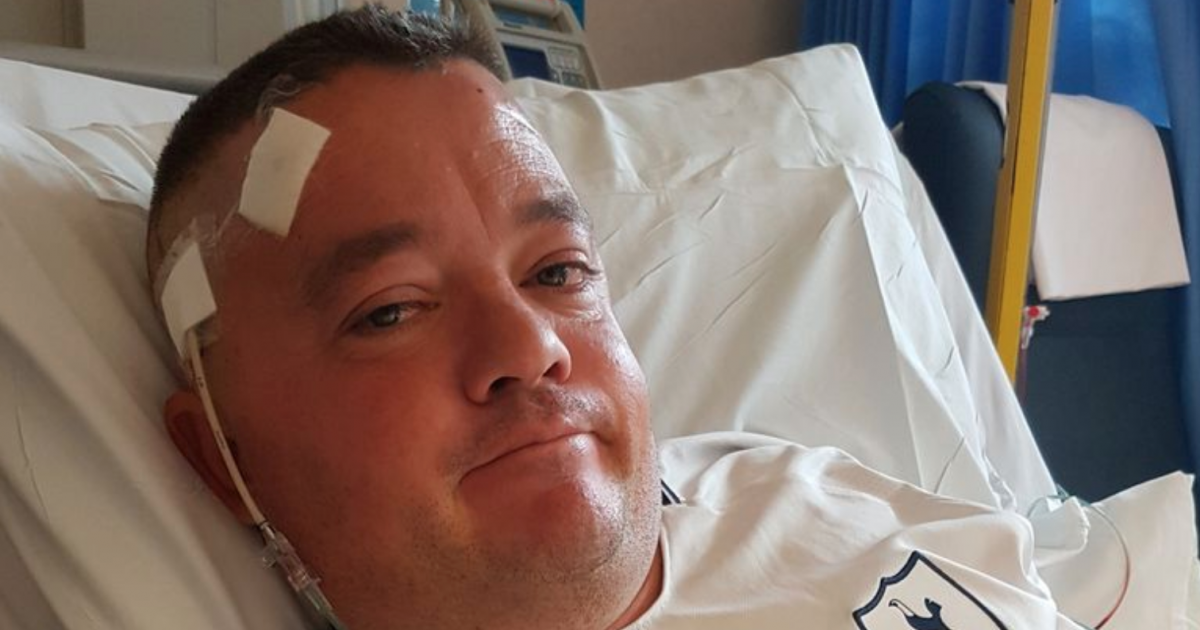Celebrating Milestones After Cancer
- Mailman Matt Shanley, 47, was having seven years of vertigo symptoms before getting diagnosed in 2018 with a rare, cancerous brain tumor.
- Now celebrating four years since his successful brain surgery, the Bedfordshire, England family man is doing a 47-mile walk for brain cancer research with his family.
- Many people undergoing treatment or suffering from post-cancer treatment or surgeries find it helpful to have ongoing projects or things to look forward to that are separate from their cancer battles. Celebrating an annual milestone is important to have something to look forward to and focus on the positive outcome of the experience.
Vertigo is the feeling that you are spinning, and can be caused by numerous conditions.
Read MoreThe family is celebrating this year with a two-day walk between Cranfield United Football Club to the Tottenham Hotspur Stadium on September 6. Matt, a former season ticket holder, said his grandfather once worked as president of Cranfield United FC. The Shanleys will be raising funds for the Brain Tumour Research charity’s Walk of Hope.

"This year's walk was Matt's idea really as he wanted a bit more of a challenge,” Julie shared. “We did the Walk of Hope two years ago and managed about 10 miles, raising almost £3,000. This one will be around 47 miles I don't have medical issues and am worried about myself! We'll need to plan properly and practice doing some longer walks.”
This year is extra special because Matt wasn’t well enough to participate last year. In fact, ahead of his surgery, Matt’s doctor told Julie that he might not be able to walk ever again, so he has come out with a highly positive outcome despite the side effects that he does suffer from.

"Raising awareness of brain tumours is also important to us, especially among medical professionals, because Matt was treated for vertigo for seven years before he was diagnosed but we now think he was having mild seizures."
Understanding Matt’s Type of Brain Cancer
Subependymoma, which is the type of tumor Matt had, is a type of ependymoma, which is a very rare type of tumor that starts in the brain or spinal cord which make up the central nervous system (CNS).
Ependymoma can develop in adults, but it occurs most often in young children, according to the American Society of Clinical Oncology (ASCO), and accounts for about 5 percent of all childhood brain cancers. The ASCO estimates that about 240 people under the age of 19 will be diagnosed with ependymoma this year in the United States.
According to Cedars-Sinai Medical Center, these are the major types:
- Subependymoma (grade I). This is a slow-growing tumor near the brain ventricles. It's more common in adults than children. Many times, they don't cause symptoms.
- Myxopapillary ependymoma (grade I). This is a slow-growing, lower spinal cord tumor most common in male adults.
Classic ependymoma (grade II). This is a somewhat faster-growing tumor in both children and adults. There are many subtypes. - Anaplastic ependymoma (grade III). This is a fast-growing cancer tumor often in the base of the brain and rarely in the spinal cord. It tends to spread into nearby parts of the brain and spread to other parts of the brain. These tumors tend to come back after treatment.
Can Cell Phones & 5G Cause Cancer? A Leading Brain Cancer Doctor Says ‘No’
Finding Joy After Cancer
Many people undergoing treatment or suffering from post-cancer treatment or surgeries find it helpful to have ongoing projects or things to look forward to that are separate from their cancer battles.
Celebrating an annual milestone like Matt and his family does is important to have something to look forward to and focus on the positive of the experience.
‘I'm Able to Be Here For More Milestones’One Survivor's Incredible Story
Many studies suggest that patients who are able to maintain a positive outlook often have better treatment outcomes. Experts such as Dr. Dana Chase, an oncologist at Arizona Oncology, recommends making the time to do whatever makes you happy.
Related: ‘Stay Positive, It Matters,’ Says Leading Cancer Surgeon
"We know, from good studies, that emotional health is associated with survival, meaning better quality of life is associated with better outcomes," Chase told SurvivorNet in a previous interview.
"So working on your emotional health, your physical well-being, your social environment [and] your emotional well-being are important and can impact your survival. If that's related to what activities you do that bring you joy, then you should try to do more of those activities."
Contributing by SurvivorNet staff.
Learn more about SurvivorNet's rigorous medical review process.

